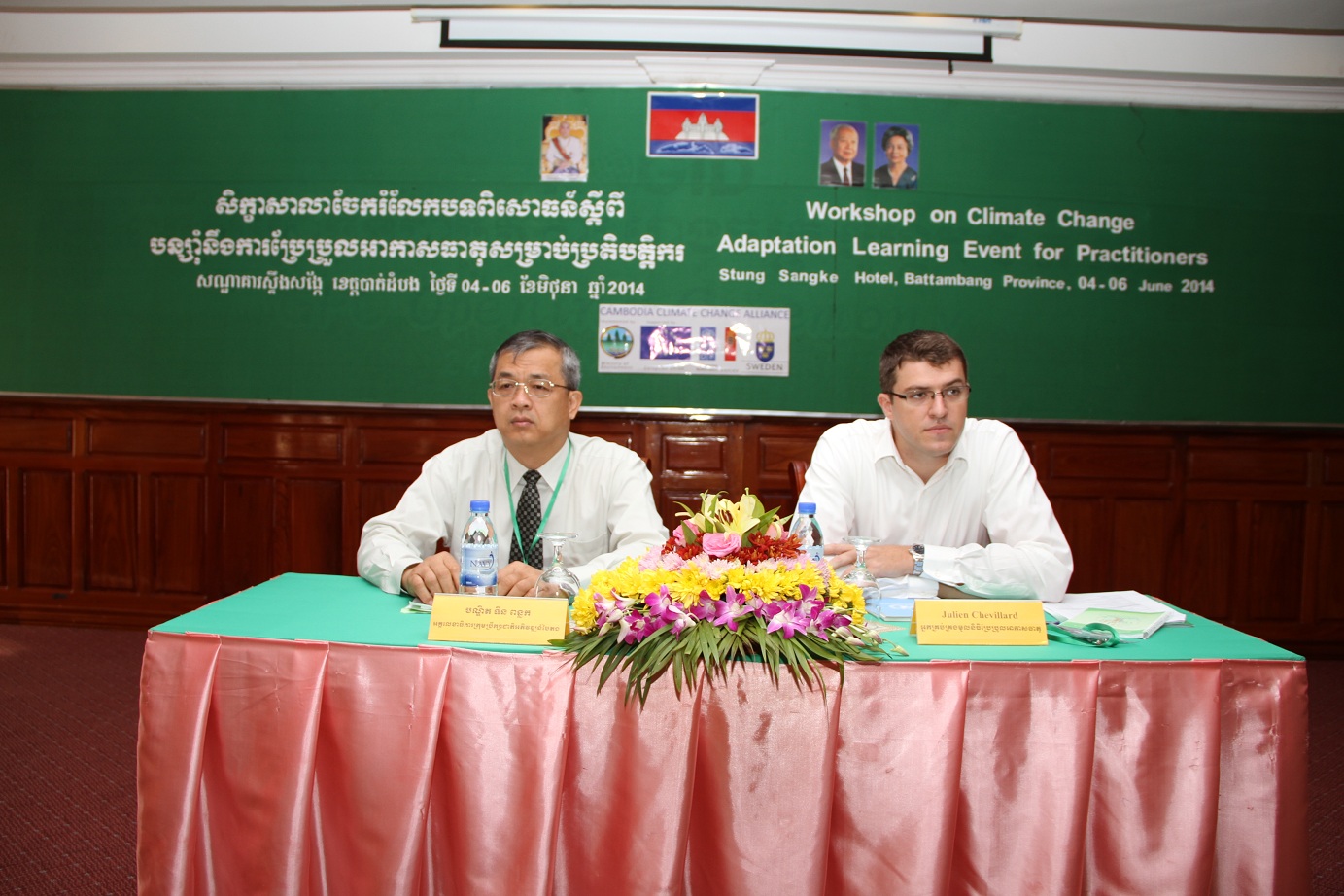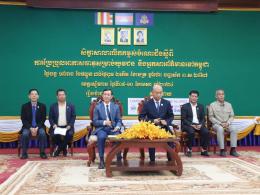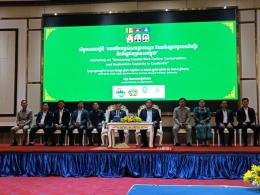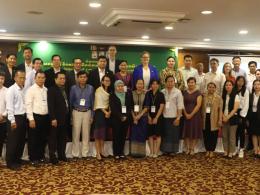 Battambang – 04-06 June 2014, the Climate Change Department (CCD) of the Ministry of Environment, with financial support from the Cambodia Climate Change Alliance (CCCA), organized a “Climate Change Adaptation Learning Event for Practitioners” at Stung Sangke Hotel, Battambang Province with participation of over 90 climate change practitioners and representatives of the 20 CCCA-funded projects, NGOs working on adaptation, the National Climate Change Technical Team and representatives from the Climate Change Department. The main objective of this workshop is to identify key lessons learnt in the various sectors/ thematic areas of climate change response in Cambodia.
Battambang – 04-06 June 2014, the Climate Change Department (CCD) of the Ministry of Environment, with financial support from the Cambodia Climate Change Alliance (CCCA), organized a “Climate Change Adaptation Learning Event for Practitioners” at Stung Sangke Hotel, Battambang Province with participation of over 90 climate change practitioners and representatives of the 20 CCCA-funded projects, NGOs working on adaptation, the National Climate Change Technical Team and representatives from the Climate Change Department. The main objective of this workshop is to identify key lessons learnt in the various sectors/ thematic areas of climate change response in Cambodia.
This exercise will rely on experience gained from a variety of climate change projects, including but not limited to projects funded by the Cambodia Climate Change Alliance. The workshop also provided an opportunity for exchange of ideas among participants on how to promote the implementation of the Cambodia Climate Change Strategic Plan 2014-2023 (CCCSP).
In his opening remarks H.E. Tin Ponlok, Secretary General of the National Council for Green Growth of the Ministry of Environment, stressed that designing and implementing an effective climate change response is considered a difficult task because the exact timing, place and impacts of climate change are not yet identified with a reliable level of certainty. However, key risks and vulnerabilities are already known, and the experience gained from the adaptation pilot projects will be an important input for the climate change policy development process, which is also supported by CCCA.
The workshop was organized mostly around group discussions, with a first set of discussions focusing on lessons learnt and policy recommendations in key sectors (agriculture and irrigation, water and sanitation, coastal zone, fisheries, disaster risk management, and ecosystem based approaches/livelihoods/forestry) and a second set focusing on cross-cutting issues (awareness raising, vulnerable groups, private sector involvement, integrating climate change into commune investment plans and replication issues). A plenary discussion addressed the results of a survey on accessibility of various types of climate information, and suggested improvements to existing knowledge management mechanisms.
A market place of materials, including 20 project best practices posters, practice notes, publications for climate change awareness-raising at community level was also organized, providing an opportunity for participants to discuss their respective approaches and learn from each other.
Some of the elements identified for follow-up are:
- Climate change is in need to be integrated into sub-national planning and budgeting procedures, building on experience gained from many local level adaptation projects working with sub-national authorities;
- Documentation and dissemination of emerging best practices (in livelihood approaches to climate change adaptation for example), and technical results from adaptation pilots (e.g. in agriculture and fisheries); and
- There is scope to improve the knowledge management system for climate change, including easy access to basic information on climate change impacts and vulnerabilities in Cambodia, and effective sharing of available data among ministries and with non-government stakeholders. Improved collection, storage and sharing of weather data was identified as a key priority.
Please also visit activities pictures in [Resources/Pictures].




